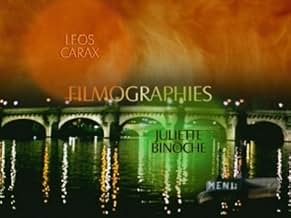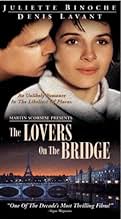Alex, che è senzatetto e dipendente dall'alcol, e Michèle, che sta perdendo la vista, stringono una relazione mentre lui dorme sul ponte Pont-Neuf di Parigi.Alex, che è senzatetto e dipendente dall'alcol, e Michèle, che sta perdendo la vista, stringono una relazione mentre lui dorme sul ponte Pont-Neuf di Parigi.Alex, che è senzatetto e dipendente dall'alcol, e Michèle, che sta perdendo la vista, stringono una relazione mentre lui dorme sul ponte Pont-Neuf di Parigi.

![Guarda Bande-annonce [OV]](https://m.media-amazon.com/images/M/MV5BY2Q3NmQ3MzctYTU4OC00ZjA5LTkzNDMtZWEzMjM2MzZmNGM0XkEyXkFqcGdeQXRyYW5zY29kZS13b3JrZmxvdw@@._V1_QL75_UX500_CR0)

























